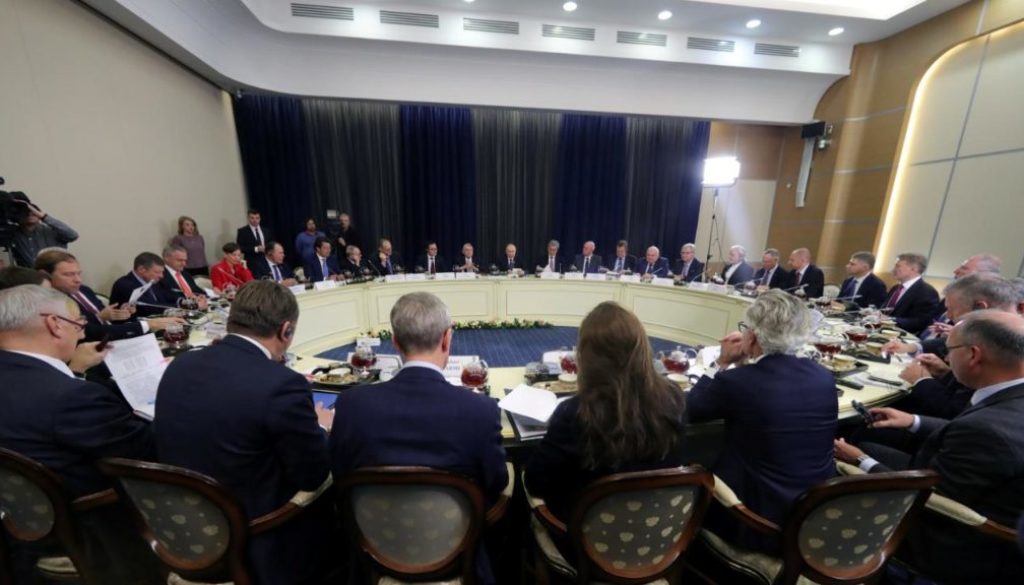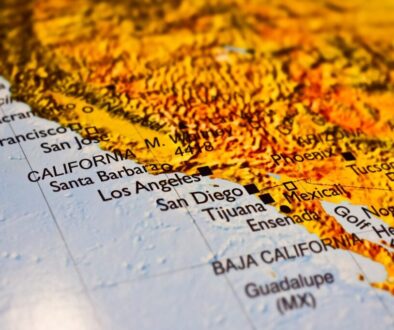Industry groups and economic officials plan for the reopening of the Mexican economy
Mexico’s Ministry of the Economy is seeking to coordinate with leaders industry sectors to form working groups to plan for the imminent reopening of the Mexican economy.
Recognizing the necessity and value of harmonizing and coordinating the operation of its diverse industrial supply chains, the Mexican Ministry of the Economy has called upon various industry chambers to join together with public sector economic officials to plan for the reopening of the Mexican economy.
The actions of various industrial sectors must be coordinated
The Ministry’s undersecretary for Industry, Trade and Competitiveness, Ernesto Acevedo Fernández, recently spoke of the requests that have been made by Mexican business leaders to begin the reopening of the Mexican economy in concert and in coordination with their trading partners in the United States and Canada. The need to take such a measure was widely voiced at Mexico’s recent National Conference for Economic Recovery, which was organized by the country’s Business Coordinating Council (CCE).
All of the government officials and business leaders that were in attendance agreed upon the need to coordinate the actions of various industrial sectors in order to speed the nation’s economic recovery. Half of the volume of trade that takes place among the three North American partners is in the commercialization of intermediate goods. Intermediate goods are items that are used to create end products for industry and for consumers. The most important sector in which companies in the three countries collaborate is automotive. North American rade in automotive parts and machinery between Canada, Mexico, and the United States accounted for a value of approximately US $138.8 billion in 2019.
It is essential that the reopening of the Mexican economy take place in the near future so that the country can continue to derive the benefits that it enjoys that have their origin in the strong financial and social ties that it shares with the United States and Canada, as well as with some countries in Asia. Because of these relationships, and because of the multiplicity of free trade deals that Mexico has negotiated and signed over the last two decades, the country has become a successful export platform for manufactured, agricultural, live-stock and agro-industrial goods. Reopening the Mexican economy is the necessary step to take to reignite the profitable trade in these products.
Mexico’s commerce with the its neighbors and the world (the sum of its imports and exports) represents seventy percent of the country’s Gross Domestic Product (GDP). In order to be effective in reopening the Mexican economy to this trade, the private sector and its public sector counterparts must formulate a strategy which strikes a delicate balance between present economic necessities and public health concerns. For this reason, Acevedo Fernández has maintained that it is necessary to work with the leaders of the country’s major industry chambers for the purpose of accelerating the Mexican economic recovery.
Mexican industry leaders demand clarification of definition of essential sectors
During the meeting of the National Conference for Economic Recovery, Mexican industrialists demanded clarity from the government concerning the meaning of the opening of “essential” industries. Businessmen like Eduardo Elizondo, president of the National Association of Manufacturer of Electrical Appliances (Anfad), warned that a total of US $1 billion in exports are at risk during May and June because the entire value chain of his industry is currently considered to be non-essential. The electrical appliance sector in Mexico consists of more than 50 manufacturing plants, with more than 80,000 direct labor jobs and more than 2,000 suppliers that make parts and pieces for essential products.
A problematic decree
The definition of an essential activity, company, and industry has caused controversy in Mexico since the government declared the coronavirus pandemic to be a health emergency on March 30, 2020. The activities considered essential for the population by the Mexican government are those that are necessary for the optimal functioning of the country, as well as for the meeting of the daily needs of Mexico’s citizens. The government has classified such activities and organizations into five main groups: health, public security, economy, social programs, and critical infrastructure.
-
Group 1: Health
All work that is done in the medical, paramedical, administrative, and support areas in the healthcare industry is considered essential by the Mexican government. Additionally, pharmaceutical manufacturing is considered an essential activity, as are manufacturing technologies for healthcare, medical cleaning, sanitation, as well as the disposition of medical waste.
-
Group 2: Security
This class of essential activity includes tasks related to public safety, the protection of Mexican citizens, the national defense, and the provision of justice and legislative services on both the state and federal levels.
-
Group 3: Economics
In general, these activities relate to the food industry, gas stations, banking services, farming and agriculture, security and emergency services, funeral services, and freight and passenger transport.
-
Group 4: Social Programs
When the Mexican government declared the pandemic a national emergency on March 30, 2020, it pledged that the situation would not affect the functioning of social programs that operate to promote and maintain the health and well-being of their beneficiaries.
- Group 5: Critical Infrastructure
This area mainly concerns the conservation and maintenance of basic infrastructure for the production and distribution of such essential services as water, electricity, sewer and sanitation, and gas.
Judiciously expanding and reopening the areas of commerce that are essential to Mexico’s economic and social health is critical to reopening the Mexican economy and returning the nation to normalcy. Actions to make this happen must be taken as planned in conjunction with the major actors in the country’s diverse supply chains, as well as in coordination with major international trade partners such as the United States and Canada.





